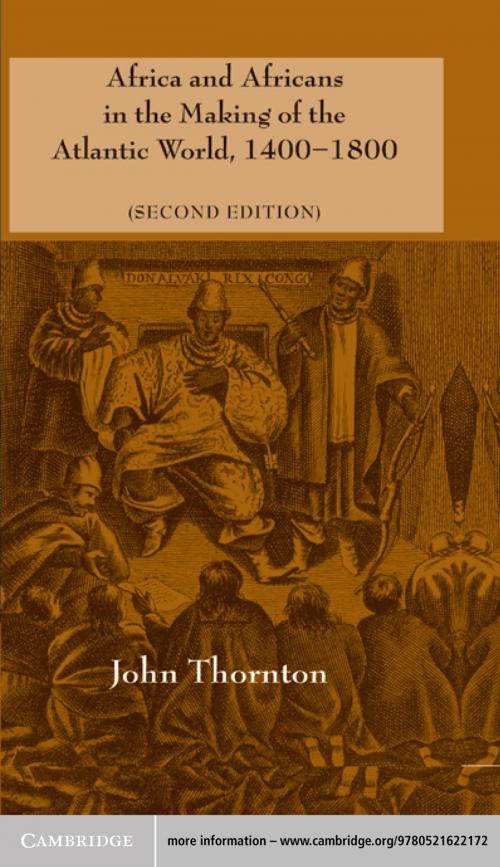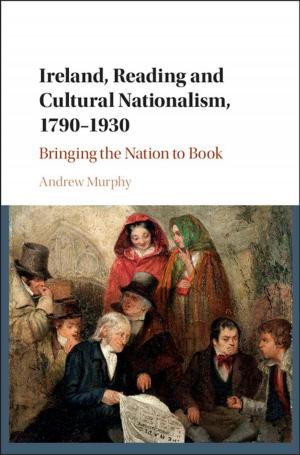| Author: | John Thornton | ISBN: | 9781139636346 |
| Publisher: | Cambridge University Press | Publication: | April 28, 1998 |
| Imprint: | Cambridge University Press | Language: | English |
| Author: | John Thornton |
| ISBN: | 9781139636346 |
| Publisher: | Cambridge University Press |
| Publication: | April 28, 1998 |
| Imprint: | Cambridge University Press |
| Language: | English |
This book explores Africa's involvement in the Atlantic world from the fifteenth century to the eighteenth century. It focuses especially on the causes and consequences of the slave trade, in Africa, in Europe, and in the New World. African institutions, political events, and economic structures shaped Africa's voluntary involvement in the Atlantic arena before 1680. Africa's economic and military strength gave African elites the capacity to determine how trade with Europe developed. Thornton examines the dynamics of colonization which made slaves so necessary to European colonizers, and he explains why African slaves were placed in roles of central significance. Estate structure and demography affected the capacity of slaves to form a self-sustaining society and behave as cultural actors, transferring and transforming African culture in the New World.
This book explores Africa's involvement in the Atlantic world from the fifteenth century to the eighteenth century. It focuses especially on the causes and consequences of the slave trade, in Africa, in Europe, and in the New World. African institutions, political events, and economic structures shaped Africa's voluntary involvement in the Atlantic arena before 1680. Africa's economic and military strength gave African elites the capacity to determine how trade with Europe developed. Thornton examines the dynamics of colonization which made slaves so necessary to European colonizers, and he explains why African slaves were placed in roles of central significance. Estate structure and demography affected the capacity of slaves to form a self-sustaining society and behave as cultural actors, transferring and transforming African culture in the New World.















